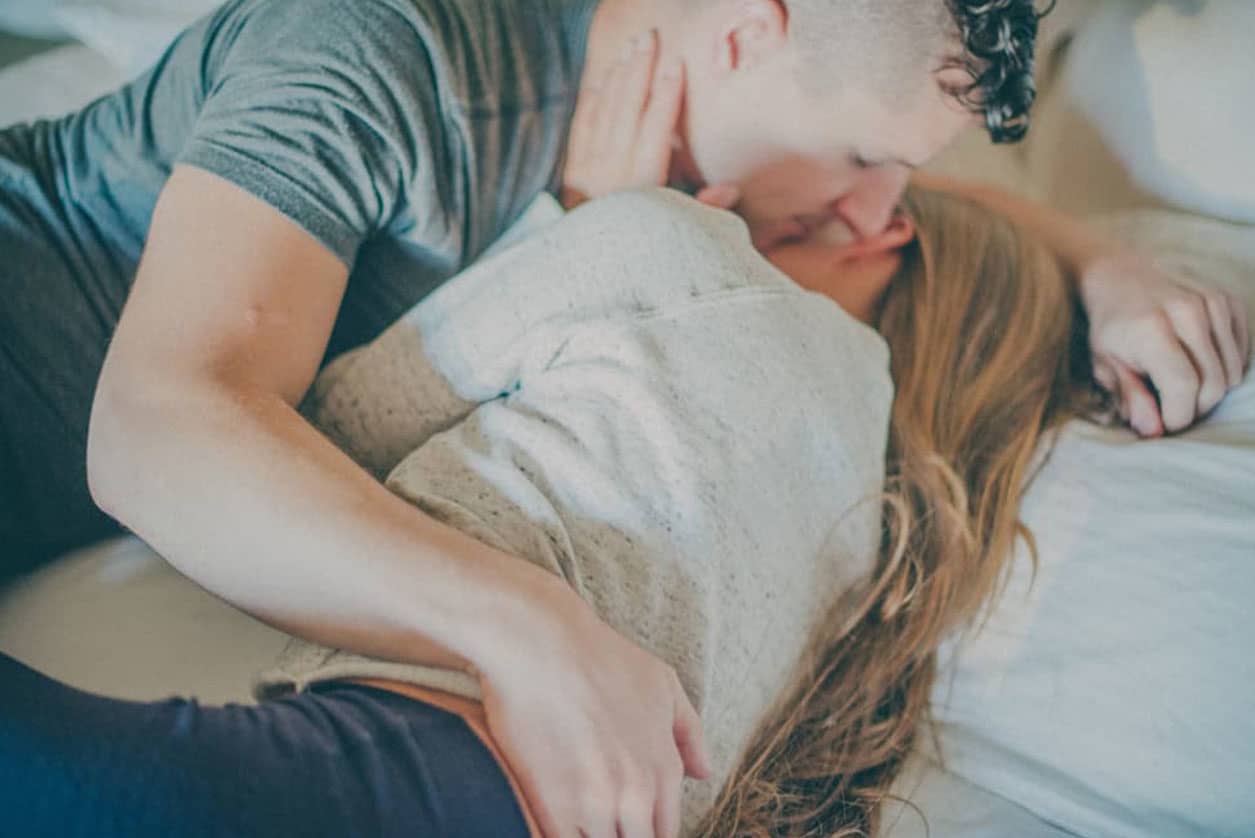Aside from self-love being less about sunshine and rainbows than some of us new-agers originally thought, the topic of loving someone who doesn’t love themselves is a little more complex than to say “no one can love you until you love yourself”.
We parrot this type of hallmark spirituality without realizing what we’re actually saying, essentially telling someone who’s stuck in their wounding that they’re unloved in their mess. “Welp, you better figure out how to love yourself because until then, you’re on your own there bud!”
This sentiment offers a rigid and heady response to an issue that traces the darkest edges of our own shadow and negates the cold hard truth.
Someone can love you even if you don’t love yourself, but your capacity to receive that love will be extremely limited.
In other words, you could be surrounded by people who love you, but if you’re caught in a story that you’re unlovable, that’s all you’ll see. Your mind will project that unconscious belief outwards and you won’t be able to see the love people extend to you. Another way this will show up, is everytime love is extended to you, somewhere in the dark basement of your ego mind you’ll tell yourself they’re pretending to care when really they don’t.
Our Relationships Are Run By Our Subconscious Patterns or “Emotional Maps”
Let’s say you’re ready for a fresh start and you move into to a new house in a newly developed neighborhood. You need to use Google Maps on your phone the first few times you drive home, and after that you’re back on autopilot. Your mind quickly begins to follow an unconscious pattern (or in this case map) back home.
Our unconscious patterns and behaviors in relationships also follow a map, only this map was installed sometime between the ages of 2 and 7 years old and it hasn’t been updated much since, or at all. Everytime you get into a new relationship expecting something different and find yourself bumping into a familiar pattern, you project the belief or behavior outwards at your partner and believe they are solely to blame. In reality, there’s something being activated for you internally and they’re reflecting that back to you.
So you see, it doesn’t matter if you trade in your ex for someone new, chances are the same old patterns will come creeping back up time and time again until you look at the ways in which your mind may be preventing you from receiving love fully.
Negative stories are programmed in our subconscious minds when we experience a mini-trauma or a full on traumatic experience.
Painful events we experience early on in life are often overlooked as traumas because in our culture we’re generally expected to dust ourselves off and move forward. We’ve become deeply disconnected from our emotions while mostly living in our heads where feelings are expected to be rational and “make sense”. By the way, feelings don’t have to make sense to be valid.
The impact of this cultural programming is a whole lot of young people with unprocessed hurt and anger, whose old stories will later rule their adult lives and prevent them from connecting to other peoples hearts.
Sara was in grade 3 when her two best friends Ali and Amanda decided they didn’t want to be friends with her anymore. They never told her why, but one day they started running away from her everytime she tried to come towards them on the playground. Sara was rejected by Ali and Amanda day after day. For the rest of the year at recess and lunchtime she would play and eat alone. Sara was so hurt by this rejection that she developed a belief that something was wrong with her. During her high-school years she still found it difficult to connect with others and make friends. On an unconscious level, Sara was so afraid she’d be rejected again that she avoided getting into friendships with others and often felt lonely. Sara had a rejection wound that never received love and healing, so it carried forward into her adult life. Fast forward to her adult years, Sara often felt anxiety in her relationships and always expected that sooner or later, the people she loved would leave her. This is how Sara developed her own “I’m unlovable” story, and there are a million and one ways this happens to many of us.
Joe was 5 years old when his mom died of cancer. He was raised by his father who was emotionally unavailable and traumatized by the loss of Joes mom. Joe learned not to show strong emotion around his father who never knew how to respond and would often tell Joe to go to his room if he needed to cry. In school Joe would get into fights with girls on the playground and often push his teachers buttons – especially if the teacher was a woman. This was Joes way of seeking energy from women and it didn’t matter if the energy was positive or negative as long as he was getting attention. Later in his adult life, Joe would avoid speaking his truth with women in romantic relationships and play the “pleaser” role in an attempt to make his partners happy. He often avoided his partners when they would get upset, sad or angry and his partners would accuse him of not caring, or being unemotional. Joe formed an abandonment wound when his mother died, and learned that it wasn’t safe to express his emotions by the way he was raised. On a subconscious level, Joe was simultaneously attempting to get love from the mother he never had through his partners in adulthood, while being limited in his capacity to express his emotions or hold space for his partners because of how he was raised.
What’s special about Joe and Sara? Absolutely nothing.
Wounds are like belly buttons, we’ve all got one and they each look unique to us but they don’t make us different.
But wounds can heal, and it’s our responsibility to do the work if we want a richer experience in love while we’re here on this planet. Both Joe and Sara had trauma, though you might be tempted to diminish Sara’s pain in comparison to Joe’s because he lost his mother through death. Sara’s trauma may seem small and unimportant compared to Joe losing his mother but the reality is our early childhood experiences shape our reality and can have a significant impact even when we perceive them to be small events.
Whether or not people love us is really secondary to whether or not we believe we are lovable.
Our unconscious stories and wounds can program us to keep people at arms length but overtime as we begin to recognize our stories for what they are, receiving love gets easier and our relationships strengthen as a result. In relationship we have to challenge the part of our mind that tries to keep us safe by putting walls up and slowly do the work to let others in. This can be as simple as sharing your fears with your partner or exploring past memories or experiences that may connect the dots for you. You don’t necessarily need to trace back to the origin of your wound to heal it, and sometimes the most important step is integrating radical self-acceptance.
Going deep with another when you have a wound around receiving love requires safety, acceptance, trust and sometimes, a really supportive mentor, coach, counsellor or therapist.
Need support in this area? Check out our Coaching page for more info on one-to-one mentorship sessions.




